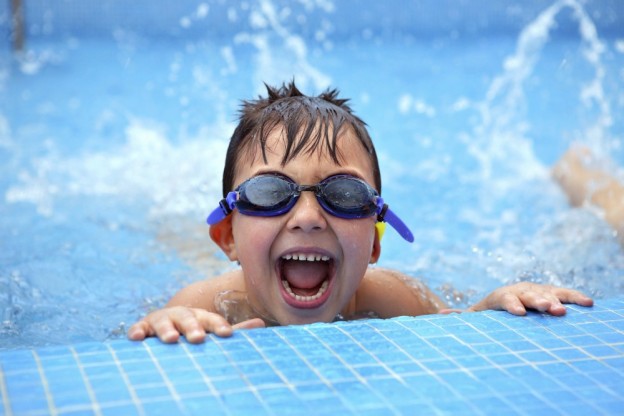
5 Water Safety Measures to Take for a Child with Special Needs
The pool is the place to be in summer. So many kids eagerly look forward to splashing their parents with their remarkably big cannon ball splashes and playing Marco Polo. The water can be also be a dangerous place; drowning is the second-leading cause of accident-related death for kids under 4.
As the sister of a child with Autism, I felt responsibility for my brother’s safety, even with my parents around! I understand the panic of wondering where a child with Autism has wandered off to, even in a public setting like a YMCA pool, complete with vigilant lifeguard.
Whether you are hitting the pool or the beach this summer, take these measures to keep your children safe and your mind at ease:
1. If you have a pool of your own, invest in an alarm system
This is especially helpful if your child is a toddler. Even if you have a pool cover, an alarm system can really calm your mind. A traditional pool alarm can be a huge investment, but the rewards outweigh the potential cost. An alarm system like SonarGuard will sound throughout your home if your child falls in, allowing you to respond immediately.
2. If you go to a community pool, check out Safety Turtle
This alarm system is more affordable than a built-in pool alarm and super portable, so it’s perfect for neighborhood & community pools. Safety Turtle uses bracelets that sense how long the wearer has been submerged under water and sound an alarm through the associated Safety Turtle speaker.
3. If your child goes missing, check the water first
Always check the water first. Time is crucial in the incidence of drowning. Inspect the pool and then migrate out from the pool to make sure you investigate the most immediate danger first.
4. Learn what the flags at the beach mean
Those flags at the beach are serious business. The water may seem perfectly fine from the shore, but if there’s a yellow or red flag, be sure to heed that warning. Sometimes the danger is something that isn't easily seen, like riptides.
5. If you are concerned, let the lifeguard know
If you're at a public pool or beach where there is a lifeguard, introduce your child to the lifeguard or ask the lifeguard to keep an eye on your child. Let them know you are doing all you can to watch your child, but that the assurance of knowing the lifeguard is keeping an eye on your child, too makes a big difference for you and your family.
This may also be a good time to bring awareness to any of your child’s behaviors that have concerned lifeguards in the past. It’s a lifeguard’s duty to keep everyone safe & understand what is going on in and around the pool at all times.
Have (safe & relaxed) fun out in the water this summer!


